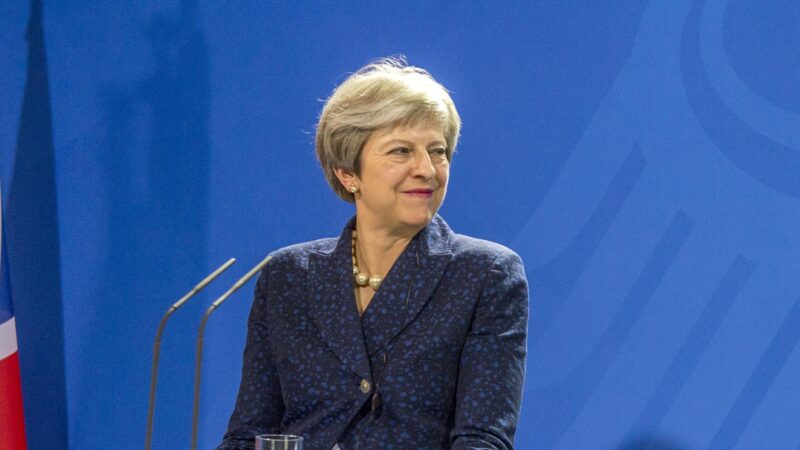Theresa May, getting high on theoretical sovereignty

The superficial difference between a Hard Brexit and a Soft Brexit is political control – taking back control, to coin a phrase. A Soft Brexit leaves the UK having to abide by the rules of the Single Market or the Customs Union or both but, as a non-EU Member State, having no say on how those rules are set. Ditto Freedom of Movement – the UK would have to do what it is told. That then brings us to Hard Brexit – leaving the Single Market and the Customs Union notionally frees the UK from those shackles, allowing the UK to diverge from the rules of the Single Market and to set its own immigration policy for EU nationals.
This distinction is central to Theresa May’s view on Brexit, and is reflected in the two main soundbites that now crop up every time she talks about the issue. Friday’s speech was a case in point: “It was a vote to take control of our borders, laws and money” she said (full text here), i.e. the UK shall set its own migration laws, its Parliament will be sovereign, and it will make no contributions to the EU budget. On the Andrew Marr show today she repeated another of her favourites, namely that the UK should not be “just a rule-taker” – i.e. a rule maker as well.
Those who still maintain that the UK should stay in the EU, precisely because it allows the UK to shape the rules, are probably groaning by now. But bear with me. There’s a theoretical gain in terms of control with a Hard Brexit, at least in comparison to a Soft Brexit.
Yet the economic consequences of a Hard Brexit seem to finally have been hammered home to Theresa May prior to her speech on Friday. The core of the speech was this:
We want the freedom to negotiate trade agreements with other countries around the world. We want to take back control of our laws. We also want as frictionless a border as possible between us and the EU – so that we don’t damage the integrated supply chains our industries depend on and don’t have a hard border between Northern Ireland and Ireland.
Now how would one actually go about keeping such integrated supply chains? By maintaining the same product standards. And avoiding a hard border in Ireland? By keeping the same Customs standards (May still thinks this latter can be solved with some sort of innovative Customs Partnership, but plenty beg to differ). The devil is with this:
If the Parliament of the day decided not to achieve the same outcomes as EU law, it would be in the knowledge that there may be consequences for our market access.
Basically: the UK could theoretically diverge from EU standards, but there would be a major cost to doing so. And so, chances are, the Parliament of the day would not do that. And May cannot even name a sector where she would like the UK to diverge anyway.
May is getting high on theoretical, and not actual, sovereignty.
What May seems to be talking about it something very similar to Switzerland’s relationship with the EU, summed up neatly in this tweet by @mattbxl:
What May is talking about is Switzerland – almost precisely in terms of the functioning of the joint committees (nominal sovereignty and a choice to diverge at a cost). Question is will the EU accept Switzerland mark 2, given they hate Switzerland Mark 1? #marr
— BritinBrussels (@mattbxl) March 4, 2018
Take food standards as a case in point. Switzerland adopts EU food law en bloc, even though it does not have to, because it is simply easier for its producers to manufacture to EU standards, given that Switzerland is surrounded by the EU. The Swiss could theoretically change their standards – and accept chlorinated chicken from the US for example – but in practice are not going to do so as the costs to their own food industry would be too high.
Meanwhile Andrew Lilico – a commentator whose views I have not always shared – has penned an interesting piece about why the European Union is not going to accept this sort of divergence from the UK anyway.
So in the end when you peel back the layers of May’s speech you are left with very little.
The Hard Brexit rhetoric appeals ideologically to her backbenchers, but then when you examine the consequences of what she is advocating you arrive at only a theoretical and not an actual gain in terms of sovereignty, and then that is only if the EU would be willing to go along with such a plan anyway – and to the EU what May is advocating looks like cherry picking.
We are no nearer to solving Brexit than we were last week.